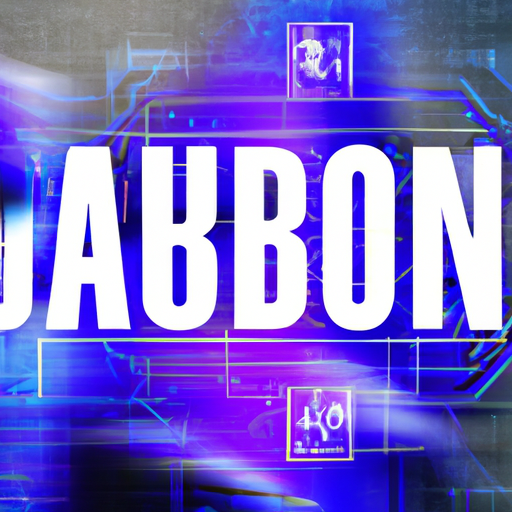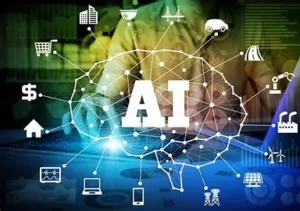
The impact of AI on job automation: how technology is changing the job market and the workforce
-
Table of Contents
- Introduction
- How AI is Transforming the Way We Work: What Are the Benefits?
- Exploring the Ethical Implications of AI-Driven Job Automation
- The Impact of Automation on Job Security: What Are the Risks?
- How AI is Redefining the Skills Needed for the Workforce of the Future
- The Pros and Cons of Automation: How AI is Changing the Job Market
- Conclusion
“Unlock the Future: Harness the Power of AI to Transform the Job Market and the Workforce”
Introduction
The impact of Artificial Intelligence (AI) on job automation is a hot topic in the modern world. AI is rapidly changing the job market and the workforce, as it is increasingly being used to automate tasks that were once done by humans. AI is being used to automate mundane and repetitive tasks, as well as more complex tasks that require a higher level of cognitive ability. This automation is having a profound effect on the job market and the workforce, as it is leading to job losses and a shift in the types of jobs available. This article will explore the impact of AI on job automation, and how it is changing the job market and the workforce.

How AI is Transforming the Way We Work: What Are the Benefits?
Artificial intelligence (AI) is transforming the way we work, offering a range of benefits that are revolutionizing the workplace. AI is a form of technology that enables machines to learn from experience, adjust to new inputs, and perform tasks that would otherwise require human intelligence. AI is being used in a variety of ways to improve efficiency, accuracy, and productivity in the workplace.
One of the primary benefits of AI is its ability to automate mundane tasks. AI can be used to automate processes such as data entry, customer service, and scheduling, freeing up employees to focus on more complex tasks. AI can also be used to analyze large amounts of data quickly and accurately, allowing businesses to make more informed decisions.
AI can also be used to improve customer service. AI-powered chatbots can provide customers with quick and accurate answers to their questions, reducing the need for human customer service representatives. AI can also be used to analyze customer data and provide personalized recommendations, helping businesses better understand their customers and provide them with a better experience.
AI can also be used to improve safety in the workplace. AI-powered robots can be used to perform dangerous tasks, such as working in hazardous environments or handling hazardous materials. This can help reduce the risk of injury to employees and improve overall safety in the workplace.
Finally, AI can be used to improve employee productivity. AI-powered tools can be used to automate mundane tasks, freeing up employees to focus on more complex tasks. AI can also be used to analyze employee data and provide personalized feedback, helping employees improve their performance and become more productive.
In conclusion, AI is transforming the way we work, offering a range of benefits that are revolutionizing the workplace. AI can be used to automate mundane tasks, improve customer service, improve safety in the workplace, and improve employee productivity. As AI continues to evolve, it will continue to offer new and exciting ways to improve the workplace.
Exploring the Ethical Implications of AI-Driven Job Automation
The advent of artificial intelligence (AI) has revolutionized the way we work and live. AI-driven job automation has the potential to drastically reduce the need for human labor, leading to increased efficiency and cost savings for businesses. However, this technology also raises important ethical questions about the implications of job automation on workers and society.
First, AI-driven job automation could lead to significant job losses, particularly in industries that rely heavily on manual labor. This could have a devastating impact on workers, who may find themselves unable to find new employment or unable to support themselves and their families. Additionally, job automation could lead to increased economic inequality, as those with higher levels of education and skills are more likely to benefit from the technology.
Second, AI-driven job automation could lead to a decrease in wages for those who remain employed. As businesses become more efficient and require fewer workers, wages could decrease as employers seek to maximize profits. This could lead to a decrease in the standard of living for many workers, as well as a decrease in economic mobility.
Finally, AI-driven job automation could lead to a decrease in job satisfaction and an increase in stress levels for those who remain employed. As businesses become more efficient, workers may be expected to work longer hours and take on more responsibility. This could lead to increased stress levels and a decrease in job satisfaction.
Given the potential implications of AI-driven job automation, it is important to consider the ethical implications of this technology. Governments and businesses should work together to ensure that workers are protected and that the technology is used responsibly. This could include providing retraining and job placement services for those who are displaced by job automation, as well as ensuring that wages remain competitive and that workers are not overburdened with additional responsibilities. Additionally, businesses should consider the potential long-term implications of job automation and ensure that the technology is used responsibly.
The Impact of Automation on Job Security: What Are the Risks?
Automation has become an increasingly important part of the modern workplace, with many businesses relying on automated systems to increase efficiency and reduce costs. However, this increased reliance on automation has raised concerns about its impact on job security. Automation can reduce the need for certain types of jobs, leading to job losses and a decrease in job security.
One of the main risks associated with automation is the displacement of workers. Automation can replace certain types of jobs, such as those that involve repetitive tasks or those that require a low level of skill. This can lead to job losses, as businesses no longer need to employ people to do these tasks. This can have a significant impact on job security, as workers may find themselves out of work and unable to find new employment.
Another risk associated with automation is the potential for increased inequality. Automation can lead to a decrease in wages for certain types of jobs, as businesses no longer need to pay for labor. This can lead to a widening of the gap between the wealthy and the poor, as those with higher-paying jobs are able to benefit from automation while those with lower-paying jobs are left behind.
Finally, automation can lead to a decrease in job satisfaction. Automated systems can be inflexible and difficult to work with, leading to frustration and dissatisfaction among workers. This can lead to a decrease in job security, as workers may be less likely to stay in their jobs if they are unhappy.
Overall, automation can have a significant impact on job security. It can lead to job losses, increased inequality, and decreased job satisfaction, all of which can have a negative impact on job security. It is important for businesses to consider the potential risks associated with automation before implementing automated systems in their workplace.
How AI is Redefining the Skills Needed for the Workforce of the Future
The advent of artificial intelligence (AI) is transforming the way we work and the skills needed to succeed in the workforce of the future. AI is a rapidly evolving technology that is being used to automate processes, improve decision-making, and create new opportunities for businesses. As AI continues to develop, it is becoming increasingly important for workers to develop the skills necessary to stay competitive in the job market.
One of the most important skills for the workforce of the future is the ability to work with AI. As AI becomes more prevalent in the workplace, workers must be able to understand how to use AI tools and how to integrate them into their workflows. This requires a basic understanding of AI concepts and technologies, as well as the ability to think critically and creatively about how to use AI to solve problems.
In addition to understanding AI, workers must also be able to collaborate with AI systems. This means being able to communicate effectively with AI systems and understanding how to use them to their advantage. Workers must also be able to interpret the data generated by AI systems and use it to make informed decisions.
Finally, workers must be able to adapt to the changing nature of work. As AI continues to evolve, workers must be able to quickly learn new skills and adjust to new technologies. This requires a willingness to learn and an openness to change.
The skills needed for the workforce of the future are changing rapidly, and AI is playing a major role in this transformation. As AI continues to develop, it is becoming increasingly important for workers to develop the skills necessary to stay competitive in the job market. By understanding AI, collaborating with AI systems, and adapting to the changing nature of work, workers can ensure that they are prepared for the future of work.
The Pros and Cons of Automation: How AI is Changing the Job Market
Automation is a rapidly growing trend in the modern workplace, with artificial intelligence (AI) playing an increasingly important role in the job market. While automation can bring many benefits, it also has some drawbacks that must be considered. This article will explore the pros and cons of automation and how AI is changing the job market.
The primary benefit of automation is increased efficiency. Automation can reduce the amount of time and effort required to complete a task, allowing businesses to save money and increase productivity. Automation can also reduce the need for manual labor, freeing up employees to focus on more complex tasks. Additionally, automation can help reduce errors and improve accuracy, leading to better customer service and higher quality products.
However, automation also has some drawbacks. Automation can lead to job losses, as machines can replace human labor in many industries. This can lead to a decrease in wages and job security, as well as a decrease in job satisfaction. Additionally, automation can lead to a decrease in creativity and innovation, as machines are not capable of the same level of creative problem-solving as humans.
Finally, automation can lead to a decrease in social interaction. As machines take over more tasks, humans may find themselves interacting less with each other, leading to a decrease in social skills and a decrease in overall job satisfaction.
Overall, automation can bring many benefits to the workplace, but it also has some drawbacks that must be considered. Automation can lead to job losses, a decrease in wages and job security, and a decrease in creativity and innovation. Additionally, automation can lead to a decrease in social interaction. It is important to weigh the pros and cons of automation carefully before implementing it in the workplace.
Conclusion
The impact of AI on job automation is undeniable. It is changing the job market and the workforce in ways that are both positive and negative. On the one hand, AI can help to automate mundane tasks, freeing up workers to focus on more creative and meaningful work. On the other hand, AI can also lead to job displacement and a decrease in wages. It is important to recognize the potential of AI and to ensure that it is used responsibly and ethically. With the right policies in place, AI can be a powerful tool for improving the job market and the workforce.







